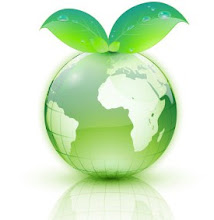"Reduce: the amount of the Earth's resources that we use.
Reuse: Don't just bin it, could someone else make use of it?
Recycle: Can the materials be made into something new?"
Due to global warming, pollution, deforestation, and a limited supply of natural resources, people are becoming more aware of the importance of protecting the environment.

The 3 Rs in solid waste management generally refer to Reduce, Reuse and Recycle. However, in Europe, the waste hierarchy has 5 steps: reduce, reuse, recycle, recovery, and disposal. Waste in the environment affects the air, water, land, animals, plants, and humans. One way people are doing their part to protect the environment is adopting the Reduce, Reuse, and Recycle Waste Program. The aim of this program is to extract the maximum practical benefits from products and to generate the minimum amount of waste.
Reduce
Buy products that do not require a lot of energy and resources to manufacture which contain environmentally friendly packaging. Avoid disposable or “use once only” items but use the more durable goods, ex. plates, glasses, cutlery, napkins, towels, handkerchiefs, and, cloth diapers, instead of the disposal types. Purchasing what is necessary and in sufficient quantity but not in excess for the family use. Use rechargeable batteries. Reducing will help with conservation efforts and decrease landfill waste and energy use. Reducing results in less pollution and a cleaner environment. It also helps conserve natural resources.
Reuse
Reuse means finding way to use “recyclable resources” form used items again, as products or parts, after giving
 them proper treatment instead that throwing them away. Reusing methods include repairing damaged items, donating items to a worthy cause, or finding another way to use them. Use cloth grocery bags instead of plastic bags and silverware and dishes instead of plastic utensils and plates because they can be used repeatedly. Another way to reuse is to hire a junk removal service. Except for hazardous materials, junk removal companies will come and remove just about any type of waste. This includes furniture, appliances, electronics, and construction refuse. Many junk removal businesses donate items to charities, repair items, and recycle.
them proper treatment instead that throwing them away. Reusing methods include repairing damaged items, donating items to a worthy cause, or finding another way to use them. Use cloth grocery bags instead of plastic bags and silverware and dishes instead of plastic utensils and plates because they can be used repeatedly. Another way to reuse is to hire a junk removal service. Except for hazardous materials, junk removal companies will come and remove just about any type of waste. This includes furniture, appliances, electronics, and construction refuse. Many junk removal businesses donate items to charities, repair items, and recycle.Recycle means taking “recyclable resources” as raw materials to make new products. This process involves making new products out of old products. This means potential landfill waste becomes a new product. You can protect the environment by buying products with a high content of post-consumer material.
Recycled products include: paper towels, toilet paper, paper bags, beverage bottles and cans, milk cartons, and much more. Most products have the recycle label on the package. Many towns and cities

have recycling programs. Junk removal companies are very aware of the public concern for the environment so they make reusing and recycling a big part of their business. You will feel good knowing that not all of the junk you are getting rid of will end up in a land fill.
Reduce, Reuse, Recycle in Japan
Japan has embarked on continuous development of a legislative structure geared towards 3Rs, with the emphasis moving to the “front of pipe” or preventative, rather than “end of pipe” solutions to its waste problem. The development of a “Recycling Oriented Economic System” has created new policies and legislation aimed at overcoming the country’s severe landfill shortage. Japan is revising from a sole focus on hazardous substances management to new phases of greening, especially in the home appliance and electronic sectors. The 3R Project is to be completed in three phases:
- Phase 1: Elimination of hazardous chemical substances
- Phase 2: Recycling
- Phase 3: Green new product development
- Container and Packaging Recycling Law
- Home Appliance Recycling Law
- Construction Material Recycling Law
- Food Recycling Law
- End-of-Life Vehicles Recycling Law
3R was initiated by G8 Sea Island Summit 2004 based on the proposal of Japanese Government, and officially launched at the 3R Ministerial Conference held in Tokyo, 2005. At the conference, 20 countries and international organizations discussed the importance of 3R in the context of sustainable development, agreed to promote 3R within each country, regional and global level, and decided how to promote 3R.
Japanese companies, especially the larger firms, appear to have responded positively to the new policy, legislative and business framework. Many companies have acknowledged that improved environmental performance is part of a firms responsibility and recognized the mutual benefits of Eco-efficiency (environment and economy). A number of companies have established “end of pipe” environmental technology businesses. There has been substantial investment and development of home appliances and office equipment recycling infrastructure. Additionally, many Japanese companies in these sectors are placing more focus on green product development by setting challenging goals over the next 5-10 years.



0 comments:
Post a Comment